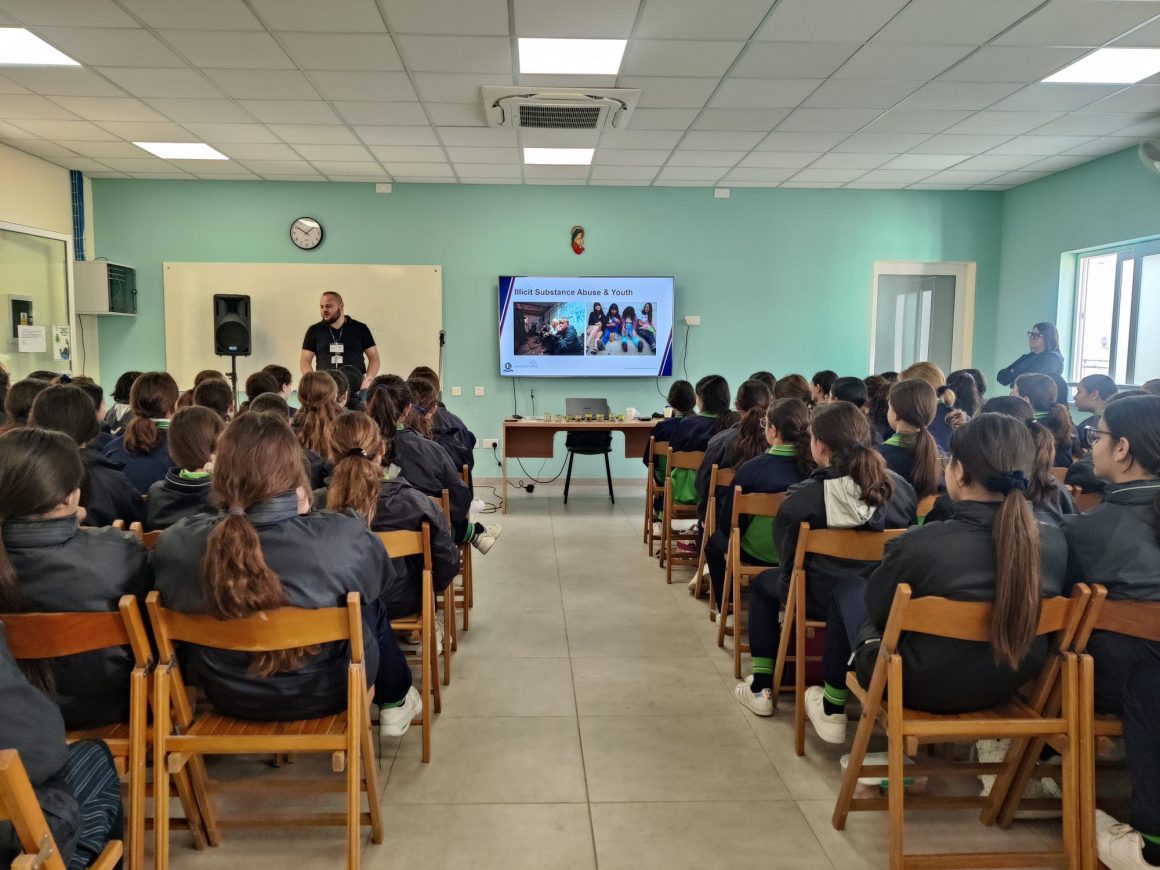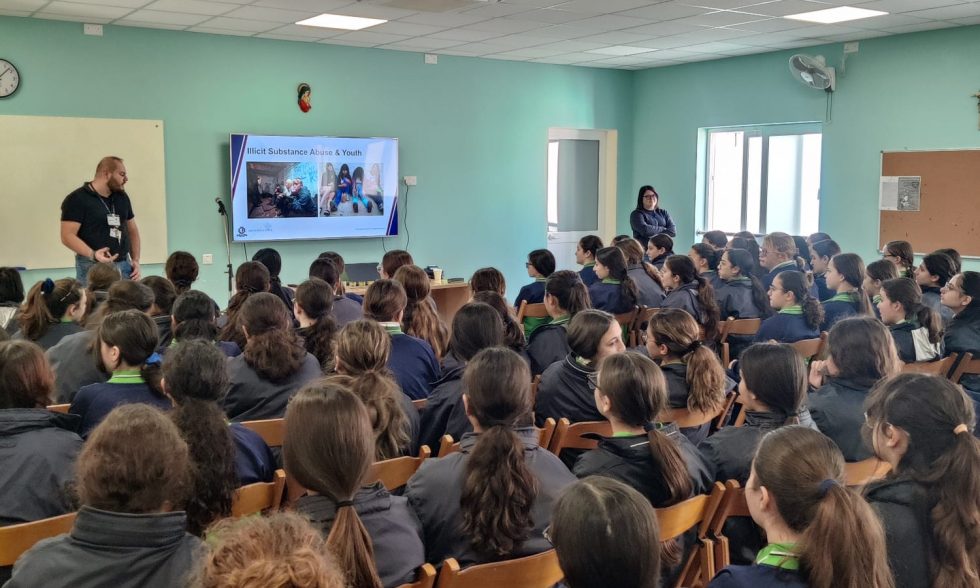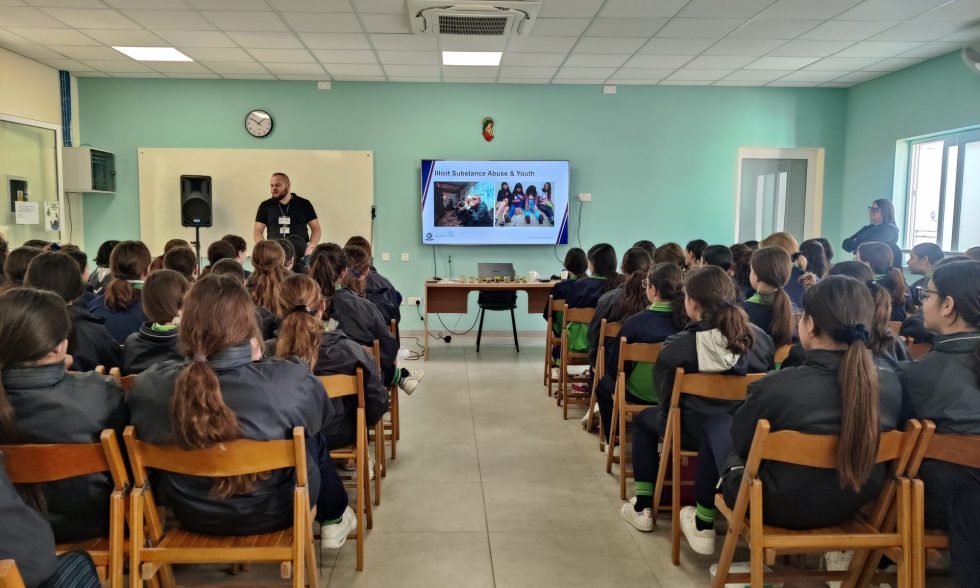Drug Education & Prevention
On Friday the 5th of February 2024 Year 9 and 10 students participated eagerly in a drug education and prevention talk. This initiative was coordinated by the Guidance Teachers of our school, the Secretariat’ s Youth Worker Ms. Ann Marie Fenech and the Police Drug Squad Unit.
Studies like the European School Survey on Alcohol and Other Drugs (ESPAD) which is the largest study on substance use among students in the world, illustrate that Drug Consumption is still a prevailing reality worldwide. We believe that prevention is better than cure and that when engaging students in alcohol and other drug education, we are automatically helping them shape their attitudes and behaviors toward AOD, now and in the future. We are also helping them develop strategies for risky situations, and empowering them to make safer and healthier choices. The aim of this talk was to help students understand the different types of drugs, clarify ambiguities they have and help them understand that all drugs, legal and illegal, have the potential to cause harm.
Drug education is a statutory part of the PSCD curriculum. In these lessons, teachers provide planned and structured learning opportunities for pupils to develop their knowledge, skills and attitudes about all drugs and appreciate the benefits of a healthy lifestyle, relating this to their own and others.
This session aided in creating personal strategies for avoiding negative peers and the inherent social pressures associated with substance use in social scenarios. The police sergeant narrated stories that they encounter in their daily work and the challenges that victims of drugs encounter even when they are rehabilitaed. The sterling work of entities like CARITAS and OASI who support addicts was also discussed.
We believe that working to inform individals of the dangers associated with substance use and equipping them with effective strategies for avoiding challenging situations, arms them with the knowledge necessary to justify their substance avoidance. These interactive pedagogies are beneficial as they engage students in problem solving and critical thinking and allow them to work through pertinent scenarios.
Ms Nathalie Camilleri
Guidance Teacher



